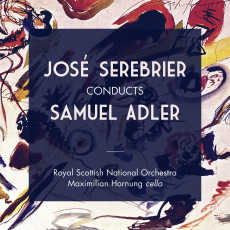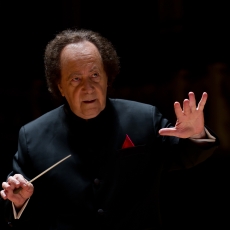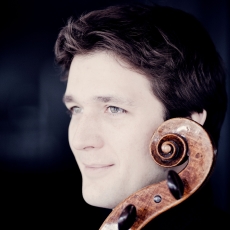RSNO - Serebrier Conducts Adler - Gramophone
Samuel Adler (b1928) is a very American symphonist. He approaches the form, and orchestral writing in general, with a taut energy, a bright palette, a penchant for neoclassical leanness paired with big-brush post-Romanticism and blurts of machine-age modernity. Think Rachmaninov spin-off, with car horns. He was born in Mannheim but his family emigrated to the United States in 1939, and it would be tricky to pinpoint the three works on this disc as the product of any particular decade because no particular school or trend or ‘-ism' applies.
Adler wrote his Sixth Symphony in the mid-1980s but when the RSNO made this recording in 2015 it was the first time the score had ever been performed. (It had been commissioned by the Baltimore Symphony under David Zinman but ended up never being scheduled into a Baltimore season.) I doubt whether the piece will now become a Scottish season fixture, either, but the orchestra play it well. One area of repertoire that current music director Peter Oundjian has developed during his tenure at the RSNO is mid- to late-20th-century American music, and on this recording conductor José Serebrier brings out cleanly defined lines, pert wind solos and an old-fashioned thick American string sound that harks back to the symphony's dedicatee, Serge Koussevitzky. In the middle movement (‘Slowly and very expressively') there are hints of that expectant string shimmer you get from classic Boston or New York recordings of Barber or American-period Bartók.
Adler's Cello Concerto is also a product of the 1980s, written for Christoph von Dohnányi and Stephen Geber (then principal cellist of the Cleveland Orchestra) with orchestral language similar to that of the symphony, if more overtly jazzy - including an ill-advised lapse into a very classical-does-jazz drum-kit swing in the second movement. But Maximilian Hornung embraces the generous, extrovert solo writing and there's an attractive heft to his sound, with the right kind of gung-ho attack. The last work on the disc is a nineminute tone-poem called Drifting on Winds and Currents, and if at first it sounds much as the title suggests - lush, floaty, reflective - it soon breaks into brass fanfares and rousing violin themes that find the RSNO in boisterous form. Worth mentioning, too, that the sound quality is very good, which bodes well: this was one of the first recordings made at the new RSNO Centre in Glasgow, which opened last year.



